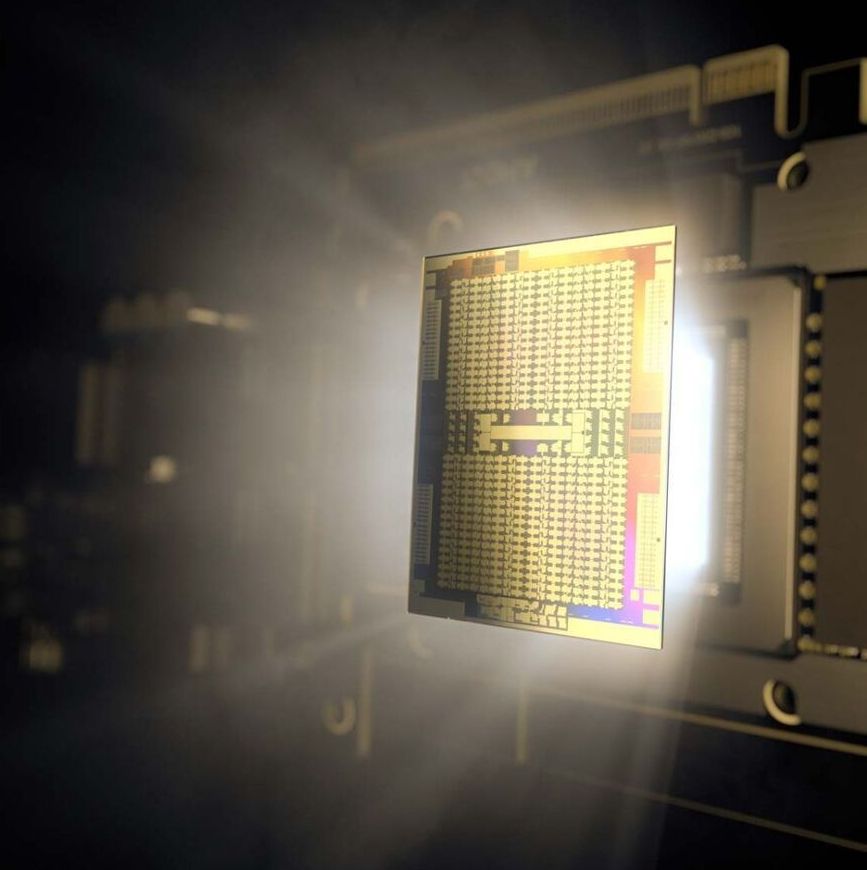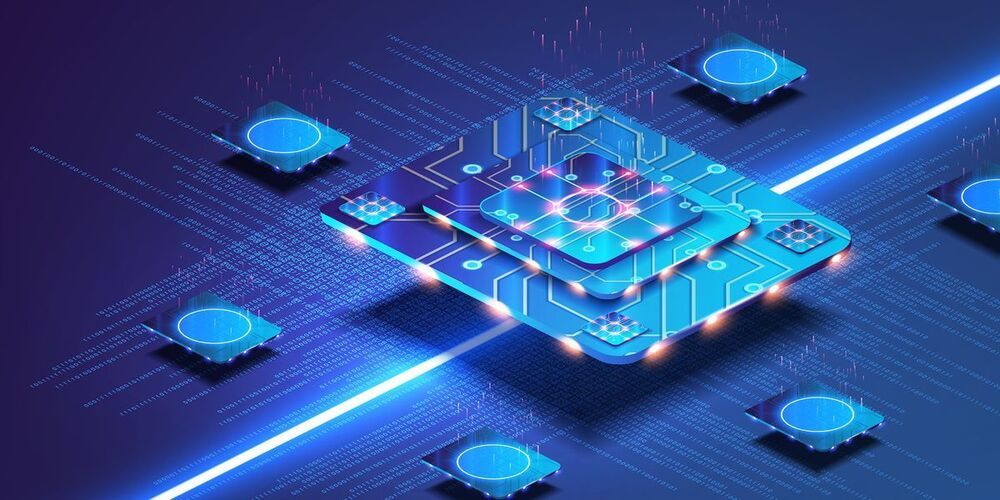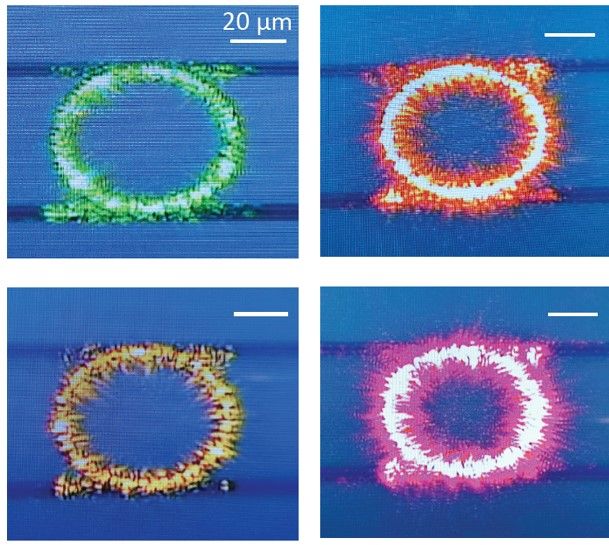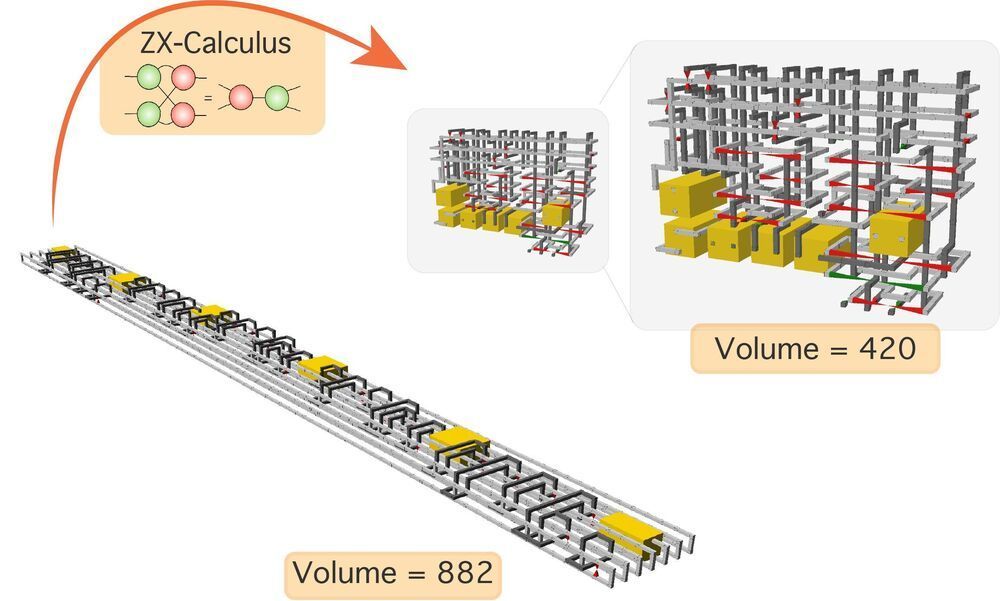AMD announces its Instinct MI100 data center GPUs that boast record-breaking FP64 throughput.



Sign up for Leap™ and get a free minute of direct QC access time, which is enough to run between 400 and 4000 problems. Alternatively, get 20 minutes of free access to Leap’s quantum-classical hybrid solvers, which exploit the complementary strengths of both best-in-class classical algorithms and quantum resources.
Now that researchers have created time crystals, the next step is to understand more about this bizarre material.



Quantum computing is a new paradigm in computing that utilizes the benefits of quantum mechanics to enhance the computing experience. Quantum computers will no longer rely on binary digits (0 and 1 states), that computers have relied on since the early beginnings, but will instead use quantum bits, which can be in a superposition of states. Quantum bits, or qubits, have the advantage of being in many states at once, offering parallel computing advantages. For example, they have long been regarded as far superior to classical computers for applications in data encryption.
Although the concept of quantum computers has been known for several decades, practical realizations are still lacking. The main limiting factor has been the critical influence of the environment on a qubit. Most physical systems need to be in perfectly controlled conditions in order to remain in the superposition state, whereas any interaction (mechanical, thermal, or other) with the environment perturbs this state and ruins the qubit. Such perturbation is termed “decoherence” that has plagued many potential qubit systems.
Graphene, having spurred research into numerous novel directions, is naturally also considered as a candidate material host for qubits. For example, back in 2013, a team of researchers from MIT found that graphene can be made into a topological insulator – meaning that electrons with one spin direction move around the graphene edges clockwise, whereas those that have the opposite spin move counterclockwise. They made this happen by applying two magnetic fields: one perpendicular to the graphene sheet, to make the electrons flow at sheet edges only, and another parallel to the sheet, that separates the two spin contributions. Electron spin has long been considered a candidate qubit, because it is inherently a quantum system that is in a superposition of states. In graphene, the spins move along the sheet edges robustly, without much decoherence. Furthermore, the same research showed switching the spin selection on and off, an important feature of q-bit transistors.

Researchers led by City College of New York physicist Pouyan Ghaemi report the development of a quantum algorithm with the potential to study a class of many-electron quantums system using quantum computers. Their paper, entitled “Creating and Manipulating a Laughlin-Type ν=1/3 Fractional Quantum Hall State on a Quantum Computer with Linear Depth Circuits,” appears in the December issue of PRX Quantum, a journal of the American Physical Society.
“Quantum physics is the fundamental theory of nature which leads to formation of molecules and the resulting matter around us,” said Ghaemi, assistant professor in CCNY’s Division of Science. “It is already known that when we have a macroscopic number of quantum particles, such as electrons in the metal, which interact with each other, novel phenomena such as superconductivity emerge.”
However, until now, according to Ghaemi, tools to study systems with large numbers of interacting quantum particles and their novel properties have been extremely limited.

A major technical challenge for any practical, real-world quantum computer comes from the need for a large number of physical qubits to deal with errors that accumulate during computation. Such quantum error correction is resource-intensive and computationally time-consuming. But researchers have found an effective software method that enables significant compression of quantum circuits, relaxing the demands placed on hardware development.
Quantum computers may still be far from a commercial reality, but what is termed ‘quantum advantage’—the ability of a quantum computer to compute hundreds or thousands of times faster than a classical computer-has indeed been achieved on what are called Noisy Intermediate-Scale Quantum (NISQ) devices in early proof-of-principle experiments.
Unfortunately, NISQ devices are still prone to lots of errors that accumulate during their operation. For there to be any real-world application of quantum advantage, the design of a fully operational large-scale quantum computer with high error tolerance is required. Currently, NISQ devices can be engineered with approximately 100 qubits, but fault-tolerant computers would need millions of physical qubits at the very least to encode the logical information with sufficiently low error rates. A fault-tolerant implementation of quantum computational circuits not only makes the quantum computer larger, but also the runtime longer by orders of magnitude. An extended runtime itself in turn means the computation is even more susceptible to errors.

A team of researchers from Delft University of Technology (TU Delft), Leiden University, Tohoku University and the Max Planck Institute for the Structure and Dynamics of Matter has developed a new type of MRI scanner that can image waves in ultrathin magnets. Unlike electrical currents, these so-called spin waves produce little heat, making them promising signal carriers for future green ICT applications.
MRI scanners can look into the human body in a non-invasive manner. The scanner detects the magnetic fields radiated by the atoms inside, which makes it possible to study the health of organs even though they are hidden underneath thick layers of tissue.
The non-invasive, see-through power of MRI is desirable for many research fields and industries. It could be particularly useful as an imaging tool in nanotechnology and the chip industry. Being able to detect signals in computer chips and other nanodevices would facilitate optimizing their performance and reducing their heat production. However, the millimeter resolution of conventional MRI is insufficient to study chip-scale devices. A team of researchers led by TU Delft have now developed a new method for sensing magnetic waves at the sub-micrometer scale.
Ira Pastor, ideaXme life sciences ambassador and CEO Bioquark interviews Dr. Michelle Francl the Frank B. Mallory Professor of Chemistry, at Bryn Mawr College, and an adjunct scholar of the Vatican Observatory.
Ira Pastor comments:
Today, we have another fascinating guest working at the intersection of cutting edge science and spirituality.
Dr. Michelle Francl is the Frank B. Mallory Professor of Chemistry, at Bryn Mawr College, a distinguished women’s college in the suburbs of Philadephia, as well as an adjunct scholar of the Vatican Observatory.
Dr. Francl has a Ph.D. in chemistry from University of California, Irvine, did her post-doctoral research at Princeton University, and has taught physical chemistry, general chemistry, and mathematical modeling at Bryn Mawr College since 1986. In addition Dr. Francl has research interests in theoretical and computational chemistry, structures of topologically intriguing molecules (molecules with weird shapes), history and sociology of science, and the rhetoric of science.
Dr. Francl is noted for developing new methodologies in computational chemistry, is on a list of the 1,000 most cited chemists, is a member of the editorial board for the Journal of Molecular Graphics and Modelling, is active in the American Chemical Society, and the author of “The Survival Guide for Physical Chemistry”. In 1994, she was awarded the Christian R. and Mary F. Lindback Award by Bryn Mawr College for excellence in teaching.